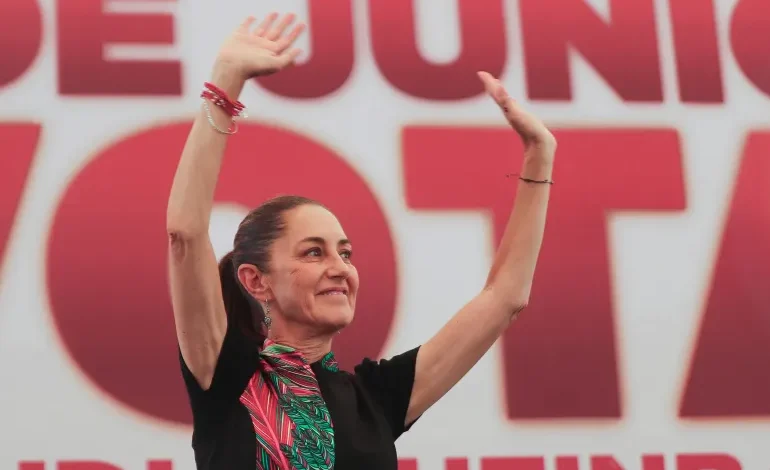Who is Claudia Sheinbaum, the frontrunner in Mexico’s presidential race?

She is leading in voter polls, poised to become Mexico’s first female president.
But Claudia Sheinbaum faces a challenge: how to distinguish herself from her political mentor, current President Andres Manuel Lopez Obrador, popularly known as AMLO.
A candidate for the left-leaning Morena party, Sheinbaum has campaigned in Lopez Obrador’s image, embracing many of his trademark projects and policies.
But experts say her personal history and past governing experience offer valuable clues about how her tenure in office might differ from Lopez Obrador’s, should she be elected on June 2.
“Sheinbaum has always been disciplined and strategic,” said Guadalupe Correa-Cabrera, a Mexican political analyst. “She’s not going to be as radical as AMLO.”
A mix of academics and politics
The former head of Mexico City’s government, Sheinbaum was born into a family of Jewish heritage, and she initially followed her parents into the field of science.
She studied physics and then energy engineering, pursuing research for her doctoratal degree at the University of California, Berkeley in the United States.
But early on, Sheinbaum also mirrored her parents’ commitment to political engagement, becoming involved in student activism. On the campaign trail, she often credits her parents’ involvement in the 1968 student protests as an inspiration for her own work.
“I have always said it: I am a daughter of ’68,” she wrote on social media in April.Her transition to a political career came under Lopez Obrador’s wing. In a campaign video chronicling her life, Sheinbaum explained that she and Lopez Obrador often participated in the same protests and activist work, but it was only in 2000, a week after he was elected mayor of Mexico City, that she was formally introduced to him during a meeting at her house.
Afterwards, Lopez Obrador called Sheinbaum with a proposition. “He told me, ‘Would you like to be secretary of the environment?’ I told him ‘yes’.”
In the decades since, she has campaigned on Lopez Obrador’s behalf, while forging her own academic and political career, including as mayor of Tlalpan.
In 2018, she became the first woman elected to lead Mexico City, a high-profile position often seen as a launchpad for future presidential bids. She resigned from the post in June 2023 to seek her party’s presidential nomination.
In the shadow of a popular president
From the moment the Morena party tapped her as its nominee last September, Sheinbaum has been the frontrunner in the 2024 presidential race.
But her campaign is buoyed in large part by the popularity of the outgoing president.
The online survey company Morning Consult has consistently ranked Lopez Obrador among the most popular heads of state currently in power, after India’s Prime Minister Narendra Modi — a fact he is known to repeat in his daily press conferences.
But Mexican presidents are limited to a single six-year term, and Lopez Obrador is therefore barred from running in the 2024 race.
The circumstances surrounding his 2018 election were historic, though — and they continue to cast a shadow over the present-day race.
Born in the often-overlooked southern state of Tabasco, Lopez Obrador was something of an underdog in 2018, having lost the two previous presidential races. Critics dismissed the then-64-year-old as a populist past his prime.
His victory, however, was ultimately a landslide: Lopez Obrador was the first candidate since Mexico’s transition to democracy to score more than 50 percent of the vote.
By contrast, Sheinbaum’s solid lead in the polls — and her urban, academic upbringing — project a different public image, distinct from Lopez Obrador’s dark-horse campaign, according to Correa-Cabrera, the political analyst.










